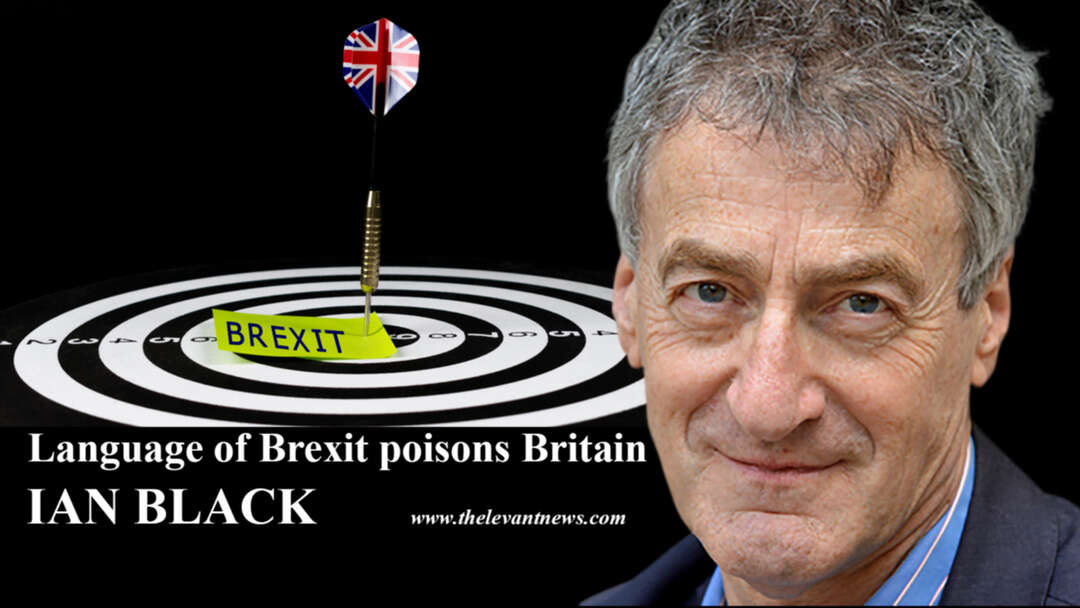-
Language of Brexit poisons Britain

IAN BLACK
Rory Stewart is a British politician with a bright future: on 4 October the former Conservative minister and member of parliament announced that next year he would be a candidate for the mayor of London, but standing as an independent, no longer representing the party led by Prime Minister Boris Johnson.
Stewart’s rise has come against an extraordinarily turbulent political background: he attracted attention this summer by challenging Johnson for the Conservative leadership when Theresa May resigned after trying and failing for three years to “deliver” the decision of the British people to leave the European Union.
Announcing his latest move, Stewart described how he wanted to leave the “madhouse of mutual insults in the gothic shouting chamber of Westminster,” where it was now difficult to get anything done. That was not a classic British understatement but a vivid and accurate description of the current poisonous atmosphere in the “mother of parliaments.”
Its mood in recent times has been aggressive, ill-tempered and insulting. The toxic quality of disagreements about Brexit has taken its toll on what was once seen as a civilised model of democratic discourse, overseen by the speaker, John Bercow, whose job is managing a house divided by the biggest, longest and most complex crisis facing Britain since the second world war.
Demonstrations have become a permanent feature of daily life in Parliament Square: “Brexit means Brexit,” scream the placards on one side of the road while protestors from the “Remain” camp facing them insist that leaving the EU will be an act of self-harm for Britain’s economy and society and that it must be stopped at all costs.
Last month saw a new low when Johnson was rebuked by the UK Supreme Court for having acted illegally in suspending parliament to avoid discussion of Brexit, even suggesting that he had misled the Queen. Forced to cut short his visit to the UN General Assembly in New York, the prime minister flew back to London and denounced opposition MPs and Conservative rebels who had come together to pass a law requiring him to seek an extension beyond the current October 31 deadline if no agreement was reached with the EU by then.
Economists continue to warn that a “no-deal” Brexit will disrupt UK trade with the EU, plunge the country into recession and — according to a government watchdog — potentially interrupt the supply of essential medicines for patients in Britain.
Johnson famously said he would rather “be dead in a ditch” than ask Brussels for another delay and he attacked what he described as “surrender” and “treachery” by those involved in “collaboration” with European capitals. Worst of all, when asked about threats to “remainers” who invoked the memory of their Labour colleague Jo Cox, who was brutally murdered by a right-wing extremist days before the June 2016 referendum, he replied that the best way to honour her would be to deliver Brexit!
He also insisted that he had the right to use the rhetoric of war when referring to Brexit, in the face of complaints from MPs that to do so would embolden those who might harm them and their families. He would “stick to my guns,” he joked. Church of England bishops called the prime minister’s language “unacceptable.”
Warning signs have been multiplying since well before Johnson replaced Theresa May in July. But she was mild-mannered compared to her successor. Last November she cautioned MPs to be “careful about language” after an unnamed Conservative MP was quoted as saying: "The moment is coming when the knife gets heated, stuck in her front and twisted. She'll be dead soon." May was also told to "bring her own noose" to a meeting a few days later.
Johnson, a notoriously attention-seeking, crowd-pleasing populist, likes to portray himself as safeguarding the will of the public against the interests of the establishment, which wants to remain in the EU. But the British people and their politicians are both bitterly divided over how, or even whether, to leave the 28-nation bloc.
It is also hard to understand how it will, or will not, work. Current wrangling over the border between Northern Ireland (part of the UK) and the Republic of Ireland is a complicated and highly technical issue – linked simultaneously to maintaining the integrity of the EU’s single market and the 1997 Good Friday agreement that brought peace to the streets of Belfast and Londonderry after 30 years of “the Troubles.”
Social media plays a key role in the story of Britain’s polarization. Michael Gove, a leading Conservative minister and campaigner for Brexit, claimed on a visit to the German Embassy in London the other day that leaving the EU was the British equivalent of the fall of the Berlin Wall. “Nonsense,” came the reply from someone in the audience. The tweet went viral, as do many about Brexit, within seconds of being posted.
Tags
You May Also Like
Popular Posts
Caricature
opinion
Report
ads
Newsletter
Subscribe to our mailing list to get the new updates!




















